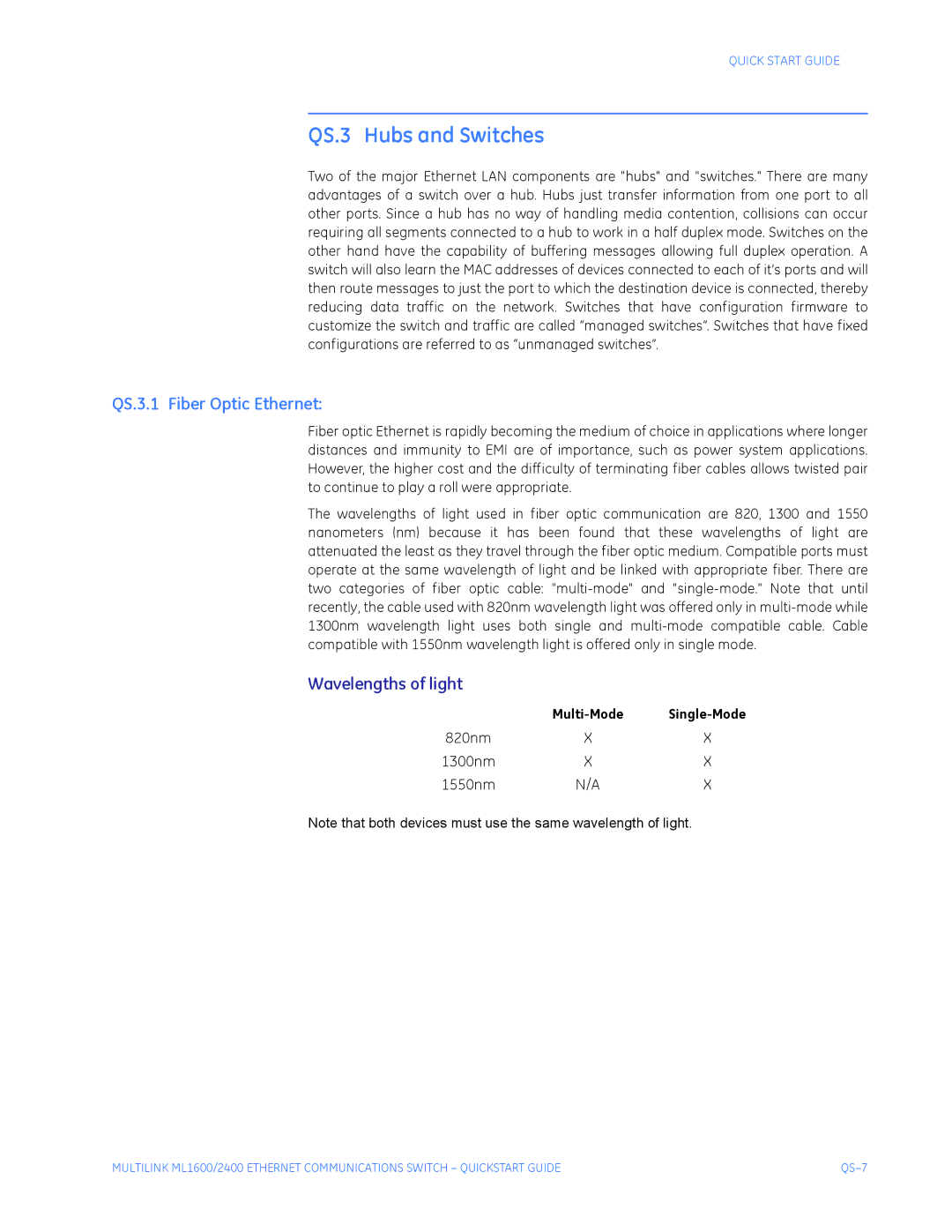QUICK START GUIDE
QS.3 Hubs and Switches
Two of the major Ethernet LAN components are "hubs" and "switches." There are many advantages of a switch over a hub. Hubs just transfer information from one port to all other ports. Since a hub has no way of handling media contention, collisions can occur requiring all segments connected to a hub to work in a half duplex mode. Switches on the other hand have the capability of buffering messages allowing full duplex operation. A switch will also learn the MAC addresses of devices connected to each of it’s ports and will then route messages to just the port to which the destination device is connected, thereby reducing data traffic on the network. Switches that have configuration firmware to customize the switch and traffic are called “managed switches”. Switches that have fixed configurations are referred to as “unmanaged switches”.
QS.3.1 Fiber Optic Ethernet:
Fiber optic Ethernet is rapidly becoming the medium of choice in applications where longer distances and immunity to EMI are of importance, such as power system applications. However, the higher cost and the difficulty of terminating fiber cables allows twisted pair to continue to play a roll were appropriate.
The wavelengths of light used in fiber optic communication are 820, 1300 and 1550 nanometers (nm) because it has been found that these wavelengths of light are attenuated the least as they travel through the fiber optic medium. Compatible ports must operate at the same wavelength of light and be linked with appropriate fiber. There are two categories of fiber optic cable:
Wavelengths of light
| ||
820nm | X | X |
1300nm | X | X |
1550nm | N/A | X |
Note that both devices must use the same wavelength of light.
MULTILINK ML1600/2400 ETHERNET COMMUNICATIONS SWITCH – QUICKSTART GUIDE |
